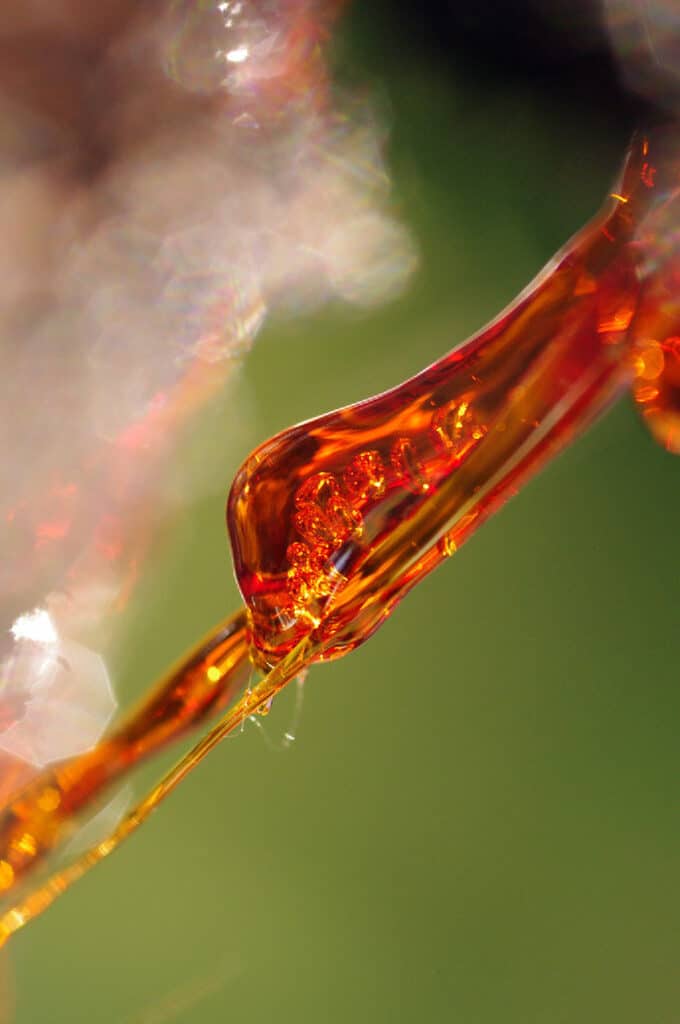Can You Eat Eucalyptus Sap? What Is Eucalyptus Sap Used For?

As I wandered through the eucalyptus grove, the sweet, earthy scent of the trees filled my senses. Curious about these majestic giants, I found myself wondering: Can you eat eucalyptus sap? What is it used for?
Eucalyptus sap, also known as gum or kino, is a sticky substance produced by eucalyptus trees. While it may not be a typical snack, eucalyptus sap has a variety of uses that make it valuable in both traditional and modern applications. From its medicinal properties to its industrial and agricultural uses, eucalyptus sap plays a versatile role in our lives.
In this article, we’ll explore the uses of eucalyptus sap and answer the question of whether it’s safe to eat. We’ll delve into its properties, its historical uses, and its role in modern society. So, grab a cup of tea and join me as we uncover the wonders of eucalyptus sap. Join me on a journey to uncover the secrets of eucalyptus sap and its many uses.
What Is Eucalyptus Sap?
Eucalyptus sap is a sticky, aromatic substance that can be found on the bark of eucalyptus trees. The eucalyptus sap is blood red in color and leaks through the scarred bark of the tree. It helps protect the tree wood and develop new bark, just like the pus does to wounds on humans.
Some insects and animals feed from it. The sap is a liquid present inside the stem of the trees which is responsible for the transport of minerals and nutrients throughout the plant. When bruised, the sap leaks through the scars.
It is primarily composed of aromatic oils and is part of the tree’s defense mechanism against pests and diseases. Eucalyptus trees naturally exude this sap, which has antiseptic properties that help protect the tree.
However, sap leakage can also be a sign of insect infestation, such as long-horned borer beetles, or mechanical damage to the tree. In some cases, sap leakage may be due to environmental stressors, such as extreme temperatures, droughts, or changes in soil moisture. The sap is also known for its medicinal properties and has been used by Indigenous Australians for various purposes.
Can You Eat Eucalyptus Sap?
Eucalyptus sap is not recommended for consumption. There is limited research on its toxicity to humans. ucalyptus leaves are not safe for people to eat. Eucalyptus oil can help health in small doses, but you should not eat it.
Aboriginal Australians used to crush and boil eucalyptus sap for medicine, like the oil from the tree’s leaves and flowers. But, the sap also has the same chemicals that can be harmful to humans.
What Is the Process of Extracting Eucalyptus Sap?

To extract eucalyptus sap, you can follow these steps:
- Choose the right tree: Eucalyptus sap is typically extracted from the Cider Gum tree (Eucalyptus gunnii), also known as the cider tree. This tree is native to Tasmania and is known for its sweet sap, which is used in various applications.
- Tapping the tree: Similar to tapping maple trees for syrup, you can tap the eucalyptus tree to collect the sap. Use a drill tapping bit to make a small hole in the tree. The hole should be tight enough to hold a collecting bag or bucket without harming the tree.
- Collecting the sap: Place a holding tank, such as a gallon sap bag or a bucket, under the tapped tree to collect the sap. The sap will flow out of the tree and into the holding tank.
- Harvesting the sap: The sap collection process typically takes between 14 and 21 days, depending on the tree species. Monitor the sap collection regularly to ensure the holding tank is not overflowing.
- Storing the sap: Once the sap has been collected, it can be stored in a cool, dark place for later use. Eucalyptus sap can be used for various purposes, such as medicinal remedies, food, and even as a fire starter.
Remember to follow local rules. Get the landowner’s permission before tapping trees on private property. Also, ensure that the tree is healthy and can withstand the tapping process without causing significant harm.
What Are the Uses and Benefits of Eucalyptus Sap?
Eucalyptus sap has several benefits, including:
- Respiratory health: Eucalyptus leaves and oil may help the respiratory system. They act as expectorants, clearing excess phlegm and mucus from the breathing passages. This removes the homes for bacteria and other germs to grow and spread.
- Immune system boost: Eucalyptus tea may boost the immune system. It may protect the body from many bacterial infections, such as E. coli and Candida albicans. These can cause yeast infections.
- Stress and anxiety reduction: The natural sedative and soothing effect of eucalyptus can help reduce stress hormones and ease mental stress.
- Skin care: Eucalyptus oil has natural antibacterial properties, making it ideal for protecting skin health and treating skin conditions.
- Soothing and healing: Eucalyptus oil’s analgesic and anti-inflammatory properties may soothe skin irritation, redness, burns, and itchy skin.
- Deodorizing: Eucalyptus soap not only removes sweat and dirt but also leaves the skin feeling fresh and clean.
- Relaxation: Eucalyptus imparts a rich scent that can relax the mind and ease stress.
- Circulation: Eucalyptus oil boosts circulation and increases blood flow.
- Bug-repellent: Eucalyptus’ strong aroma keeps insects at bay and can help prevent bug bites.
Eucalyptus sap and its derivatives, such as essential oils and teas, have been used for centuries for their medicinal properties and are widely recognized for their health benefits. The eucalyptus bark can also be burned to create smoke to ward off any insects, most likely mosquitoes, as it acts as an insect repellant.
Eucalyptus Sap vs. Eucalyptus Oil: What’s the Difference?
Eucalyptus sap and its derivatives, like essential oils and teas, have been used for centuries for their medicinal properties. Eucalyptus oil is an essential oil extracted from the leaves of the eucalyptus tree through a distillation process. It has a refreshing smell. It is used in aromatherapy, on skin, and as a natural remedy. It treats respiratory issues, inflammation, and skin infections.
Eucalyptus oil also kills germs. It is good at disinfecting surfaces. It fights pathogens like staph, E. coli, Salmonella, Candida, and H. pylori.
Eucalyptus sap, on the other hand, is not commonly used for medicinal purposes. It is a thick, sticky substance that forms on the bark of eucalyptus trees. It is mainly used in industry for things like adhesives, paper, and tannin for making leather.
In short, eucalyptus oil is a useful essential oil with many therapeutic benefits. Eucalyptus sap is a byproduct of the tree. It is mainly used in industry.







